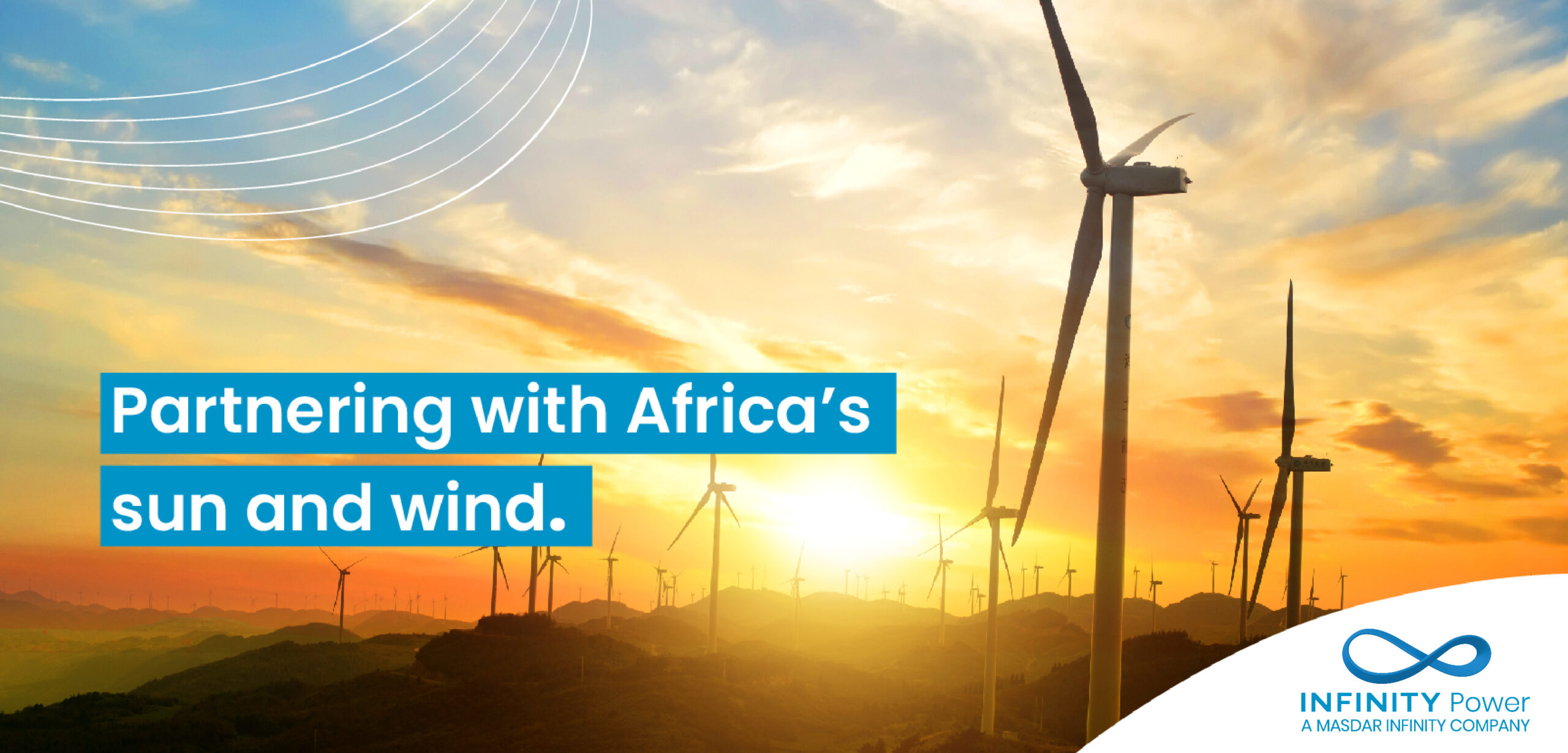- Dewa commissions 200 MW second unit in fourth phase of UAE’s Al Maktoum solar park. (Solar)
- Emirates + Shell ink agreement for SAF supply at airline’s Dubai hub. (Aviation)
- Emirates NBD taps bank suite its debut green bond issuance. (Debt Watch)
- KSA’s Red Sea is collaborating with Spain’s Armando Alvarez to manufacture recyclable greenhouse roofs for hot climates. (Agritech)
- US’ Aqua Membranes earns top prize for desalination innovation in KSA. (Startup Watch)
- Zeekr to sell EVs in four new MENA countries. (From the Climate Store)
- The UAE wants to host COP29, too. (What We’re Tracking Today)
- A greener wind turbine industry? Sweden’s Modvion may have the answer. (Climate in the News)
- A waste recycling factory by Taiwan’s Miniwiz is coming to the UAE next year. (Also on Our Radar)
- The price tag of decarbonizing shipping. (What We’re Tracking Today)

Tuesday, 3 October 2023
Dewa commissions 200 MW second unit in Al Maktoum solar park
TL;DR
WHAT WE’RE TRACKING TODAY
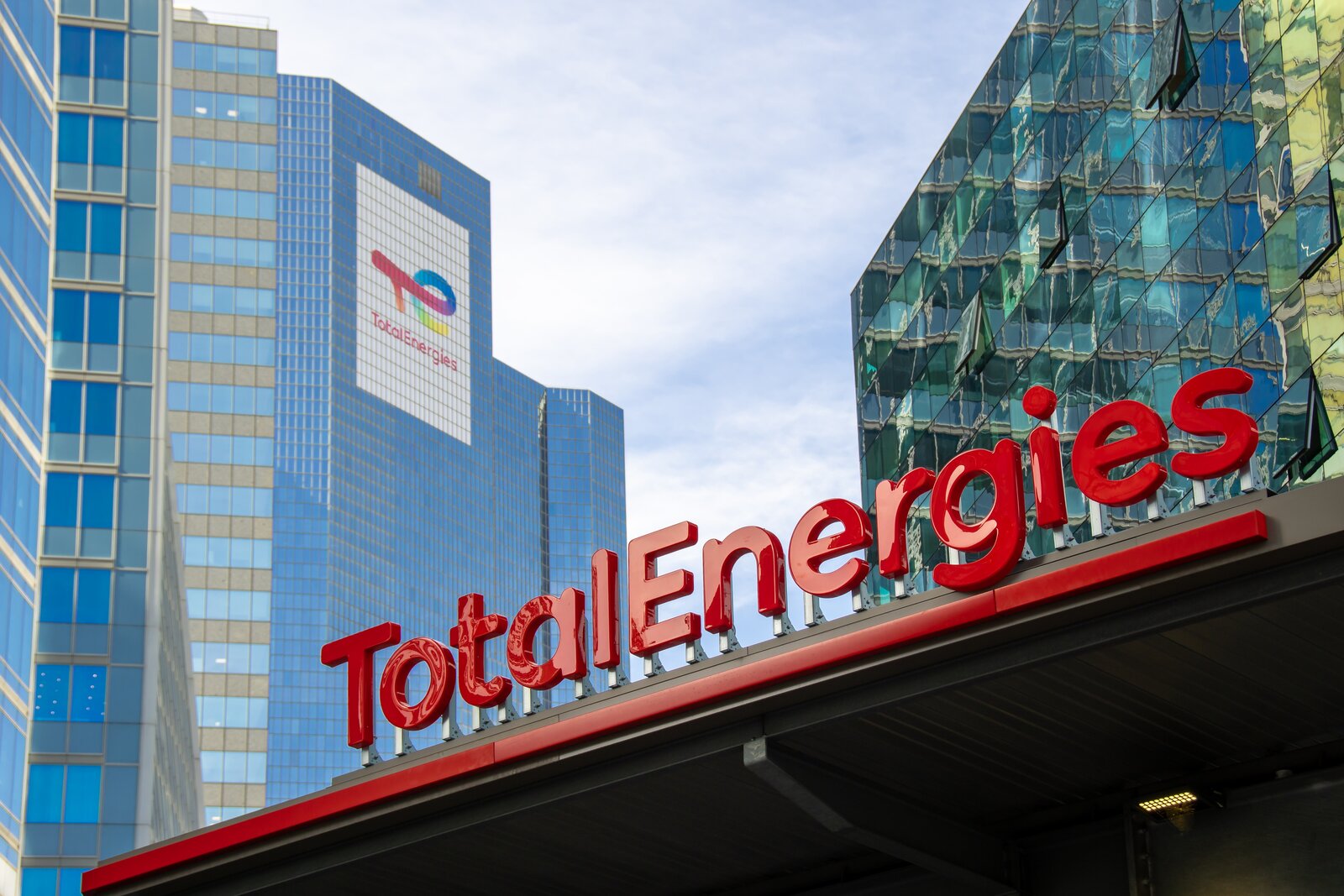
Good morning, wonderful people. It’s yet another busy news day today, with the news flow not looking ready to let up just yet.
THE BIG CLIMATE STORY- The Dubai Electricity and Water Authority (Dewa) has commissioned the 200 MW second unit of the parabolic basin complex in Mohammed bin Rashid Al Maktoum solar park’s fourth phase
THE BIG CLIMATE STORY OUTSIDE THE REGION- There’s no single climate story grabbing the headlines this morning, but four environmental groups have filed a lawsuit against France’s TotalEnergies over their oil project in Uganda and other fossil fuel projects, Reuters reported on Monday. The groups — Darwin Climax Coalitions, Sea Shepherd France, Wild Legal and Stop EACOP-Stop Total en Ouganda — said they filed a complaint over the leading energy company’s “climaticide action.” They said that TotalEnergies has approved more oil projects than any of its counterparts between 2022 and 2025, including a USD 3.5 bn East African Crude Oil Pipeline (EACOP) that will help Uganda export oil. A TotalEnergies spokesperson said the company was not aware of the legal complaint, stressing that it “operates in compliance with its operating standards and with laws and regulations.”
The complaint against TotalEnergies also got ink from: Bloomberg | AFP.
OVER IN COPLAND- The UAE wants to have its COP and host the next one too: The UAE has expressed interest in hosting COP29 instead of frontrunners Armenia and Azerbaijan, given the ongoing geopolitical tensions in Eastern Europe, The Financial Times reported. Russia has pushed back against any EU country hosting the summit in light of the Ukraine war. Germany, as the home of the UN Framework Convention on Climate Change, would host the event if countries fail to choose a host, with the UAE to remain as president.
But it's still figuring out how to reach a fossil-fuel phase out agreement at its biggest energy conference ahead of COP: The Abu Dhabi International Petroleum Exhibition and Conference (Adipec) kicked off yesterday with a goal to get industry players to make firm decarbonization commitments ahead of the anticipated climate summit in November, COP28 CEO Adnan Amin told Reuters. “What we have done today is something quite unprecedented in the COP process, to bring together both the demand and supply side in terms of emissions," Amin said. COP28 President Designate Sultan Al-Jaber and US Climate Envoy John Kerry attended the first day of meetings on the commercialization of hydrogen, carbon capture technologies, methane elimination, and increasing renewable energy, Reuters said citing a COP28 statement. Stakeholders will have until Thursday at Adipec to come up with a more solid consensus on what a global fossil-fuel phase out would look like.
Al Jaber claims Big Oil is on board, but fails to mention further details: More than 20 oil and gas companies have positively answered calls to reach net-zero emissions by 2050 and stop routine flaring by 2030, Reuters reported, citing statements made by Al-Jaber during Adipec. Al Jaber did not give details about which oil companies he is referencing or how they plan to reach those targets.
REMEMBER- Climate experts are coming head-to-head with oil and gas companies with regards to agreeing on the fastest and most effective method to decarbonize industries, with the former championing setting goals to reduce fossil-fuel production — which the EU is backing — while the latter is pushing a focus on carbon capture technologies.
And across the Mediterranean, the EU is preparing itself for the worst: Spain’s Energy Minister Teresa Ribera has warned that talks at the COP28 climate summit will be “challenging,” Reuters reported, citing Ribera’s opening comments at the Climate and Energy Summit co-hosted by the International Energy Agency in Madrid. Spain — which currently holds the EU Council rotating presidency — is trying to push for an international coalition to back the 2015 Paris target of limiting global warming to 1.5°C above pre-industrial levels.
MEANWHILE- UAE FM in Paraguay for pre-COP briefing: UAE Foreign Minister Abdullah bin Zayed Al Nahyan met with the President of Paraguay on Monday to talk bilateral cooperation in investment, climate, and industry as part of the UAE’s pre-COP rounds. (Wam)
WATCH THIS SPACE #1- More fertilizers by Oman? Salalah’s Organic Fertilizer Production plant is aiming to produce 100k tons of organic fertilizers within a year, The Times of Oman reported on Sunday, citing statements by Nakheel Oman Development Company’s Director of Farms Planning Sarah bin Zaher Al Afan. She said that the plant — which falls under the supervision of the Nakheel Oman Development Company in cooperation with the Ministry of Agriculture, Fisheries and Water Resources — produced 25k tons of organic fertilizers since the start of its operations during the first quarter of this year. She revealed that the facility uses green waste provided by Oman Environmental Services Holding Company (be’ah) to produce organic fertilizers. It also utilizes animal waste purchased from local cattle breeders, she added.
WATCH THIS SPACE #4- UK firm ventures into Morocco’s Zagora Cobalt Project: Atlantic Research Minerals (ARM), a subsidiary of UK-based clean metals exploration company Critical Mineral Resources (CMR), has agreed to invest in the scoping and feasibility studies for the cobalt-rich site of Zagora in Morocco, as part of an earn-in agreement with the project owner SA Strategy, the UK company said yesterday. ARM will acquire an initial 20-25% share in the project, which will rise to 70% after the feasibility study is completed.
WATCH THIS SPACE #3- UN adopts new safety rules for chemical handling: The UN has adopted new global rules for the safe handling of chemicals under a Global Framework on Chemicals, according to a statement by the intergovernmental organization. The framework sets out 28 concrete targets and guidelines for key sectors across the supply chain, from the production stage to the waste stage. These targets tackle the illegal trafficking of chemicals and waste and include a plan to phase-out the use of highly hazardous pesticides in agriculture by 2035. It also calls for a transition to more sustainable chemical alternatives, responsible use of chemicals in industry, agriculture, and healthcare, and better access to information about the risks associated with different chemicals. Germany has pledged EUR 20 mn to implement the framework, which the United Nations Environmental Programme (UNEP) will manage. The framework was passed during the Fifth International Conference on Chemical Substances Management (ICCM5) of the UNEP held in Bonn.
And doubling down with a separate Bonn Declaration: Participants also adopted the Bonn Declaration, in which they committed to “prevent exposure to harmful chemicals, and phase out the most harmful ones, where appropriate, and enhance the safe management of such chemicals where they are needed,” according to the statement.
DATA POINT– No easy path to decarbonize the shipping industry: Decarbonizing the world’s shipping industry would require an additional USD 8 bn to USD 28 bn annually by 2050, UN agency UNCTAD said in a report last week. It called for a “just and equitable transition" to a decarbonized shipping industry, highlighting the substantial costs needed for such a transition. Investments ranging from USD 28 bn to USD 90 bn annually will be required to develop infrastructure for 100% carbon-neutral fuels by 2050, UNCTAD said.
And an aging fleet is ringing the bells: UNCTAD voiced concern over the aging of the global shipping fleet, saying that more than half of the world’s fleet is over 15 years old. Commercial ships averaged 22.2 years old at the beginning of the year, two years older than a decade ago. “Ship owners face the challenge of renewing the fleet without clarity regarding alternative fuels, green technology and regulatory regimes to guide ship owners and ports, while port terminals face similar challenges in vital investment decisions,” it said.
REMEMBER– Member countries of the International Maritime Organization (IMO) gave in July the green light to a revised greenhouse gas strategy that outlines a net zero emissions goal for the shipping industry by mid century. They agreed following talks by the UN shipping agency to reach net zero “by or around, i.e., close to 2050, taking into account different national circumstances.” However, such a strategy has been criticized by environmentalists as not enough. The shipping industry accounts for nearly 3% of global greenhouse gas emissions, with emissions escalating by 20% in just a decade, according to the UNCTAD.
THE DANGER ZONE- Amazonian dolphins die en masse amid rising water temps: Water temperatures in Brazil’s Lake Téfé have exceeded 39°C after a protracted drought dried up the lake basin, leaving hundreds of pink river dolphins and thousands more fish dead in scenes described as “apocalyptic” on Friday, the Guardian reports. Brazil’s extreme weather changes, resulting from human activity and the cyclical El Niño weather phenomenon, has caused intense rainstorms in the southern parts of the country and a scorching drought in the north. The water depth of the Amazon, the world’s second longest river, has dipped by 30 cm every day over the past two weeks and by 7.4 m since the start of this year, a rate local biologists have described as “absurd.”
|
***
YOU’RE READING ENTERPRISE CLIMATE, the essential MENA publication for senior execs who care about the world’s most important industry. We’re out Monday through Thursday by 5am Cairo / 5am Riyadh / 6am UAE.
EXPLORE MORE OF ENTERPRISE ON THE WEB — tap or click here to read EnterpriseAM, EnterprisePM, and The Weekend Edition on our powerful new website packed with reader-friendly features.
Were you forwarded this email? Get your own subscription without charge here or reach out to us on climate@enterprisemea.com with comments, suggestions and story tips.
***
CIRCLE YOUR CALENDAR-
The Saudi Green Building Forum kicks off next week from Monday-Thursday, 9-12 October. The forum, hosted by the Saudi Municipal, Rural Affairs, and Housing Ministry, will focus on speeding up the construction industry's transition to carbon neutrality by promoting sustainable practices in energy, water use, and green cities.
MENA Climate Week is kicking off soon in KSA’s Riyadh Boulevard City: The UN-backed climate conference, hosted by Saudi’s energy ministry, will gather policy makers, the private sector and civil society organizations from across the MENA region to discuss climate barriers and solutions between 8-12 October. This is one of four region-specific climate weeks to take place after the UN’s global stocktake report and ahead of COP28 this December.
Check out our full calendar on the web for a comprehensive listing of upcoming news events, national holidays and news triggers.
SOLAR
Dewa commissions 200 MW second unit in fourth phase of UAE’s Al Maktoum solar park
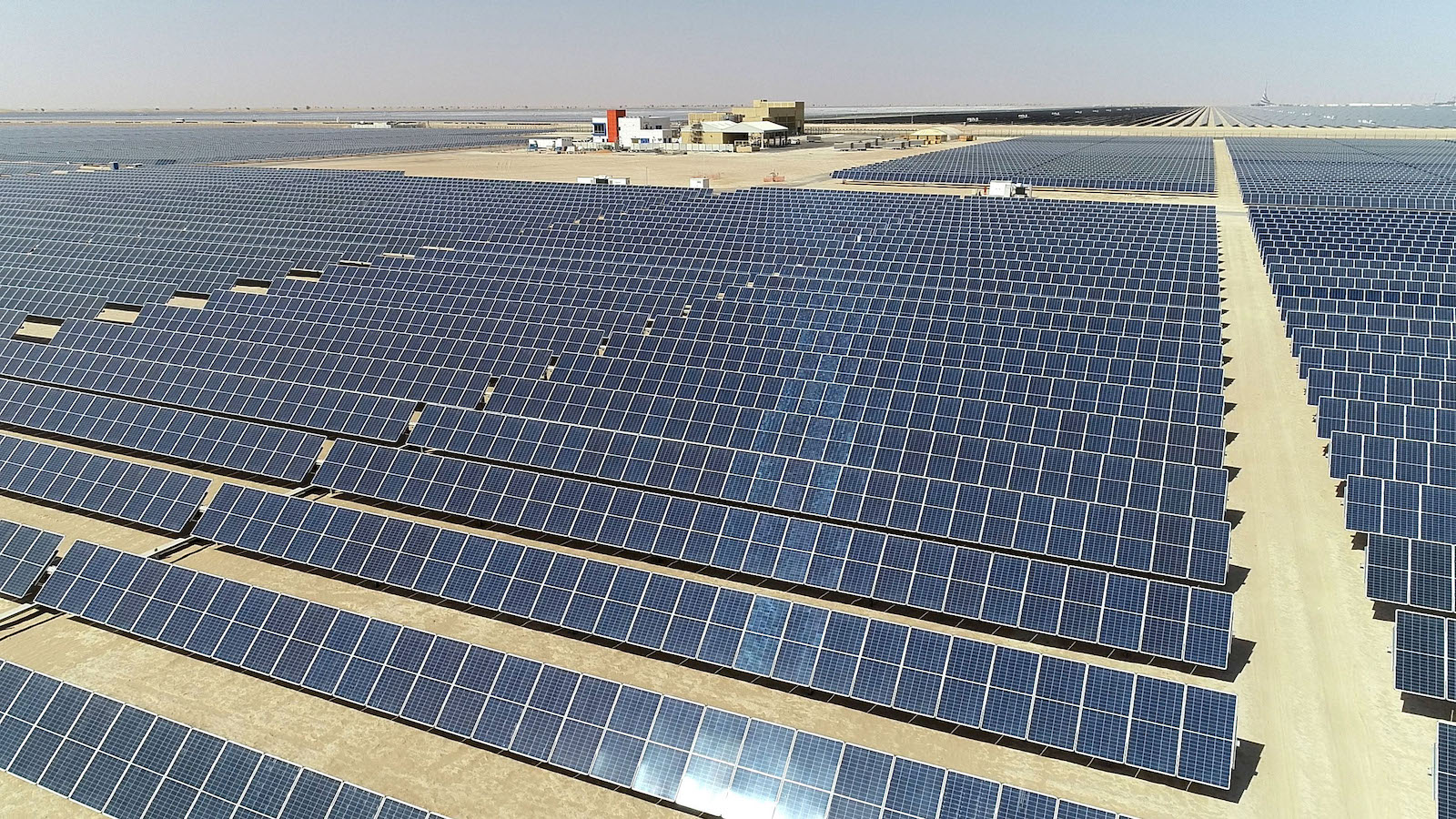
Another step forward for Al Maktoum solar park: The Dubai Electricity and Water Authority (Dewa) has commissioned the 200 MW second unit of the parabolic basin complex in Mohammed bin Rashid Al Maktoum solar park’s fourth phase, Dewa said in a disclosure (pdf) to the DFM yesterday. The solar park is the world’s largest single-site solar park using the IPP model with a planned production capacity of 5 GW by 2030 and investments totalling AED 50 bn (c. USD 13.6 bn).
A big boost for the solar park’s capacity: The commissioning of the second unit in the fourth phase helped boost the solar park’s production capacity to 2.6 GW and Dewa’s total production capacity to 15.1 GW, according to the statement.
About the fourth phase: The 950 MW fourth phase — which is being built by Dewa and a KSA Acwa Power-led consortium that includes the Chinese Silk Road Fund — is the largest single-site project in the world that brings together Concentrated Solar Power (CSP) and photovoltaic technologies, Dewa said. The phase uses the Independent Power Producer (IPP) model with investments of up to AED c.16 bn. It is expected to power 320k households and slash carbon emissions by 1.6 mn tonnes annually, Dewa added.
And that’s not all: The fourth phase utilizes three hybrid technologies to produce clean energy: 600 MW from a parabolic basin complex comprising three units of 200 MW each, 100 MW from the world’s tallest solar power tower, and 250 MW from PV solar panels. Around 717 MW have been commissioned from the fourth phase, which will have the world’s largest thermal storage capacity of 15 hours, allowing 24-7 solar energy availability.
Third unit is nearing completion: The third unit of 200 MW from the parabolic basin complex and 33 MW from PC solar panels at the fourth phase are 87.1% complete, according to the statement.
It’s been a busy summer for the solar park: In August, Dewa selected state-owned renewables firm Masdar to build and operate its 1.8 GW sixth phase of the Mohammed bin Rashid Al Maktoum solar park, beating Saudi Arabia’s Acwa Power for the bid. The full investment ticket for the upcoming phase is AED 5.5 bn (c. USD 1.5 bn), and it is scheduled to become operational in stages between 4Q 2024 and 2026.
AVIATION
Emirates + Shell ink agreement for SAF supply at airline’s Dubai hub

Emirates and Shell close SAF supply contract: The UAE’s national carrier, Emirates, has inked an agreement with Shell Aviation for a 300k gallon supply of blended sustainable aviation fuel (SAF) for use at its hub in Dubai International Airport (DXB), according to a press release. The agreement will see the first SAF delivery taking place before year’s end, marking the first time SAF will be supplied via the airport’s fuelling system, the statement said. No financial details pertaining to the agreement were disclosed.
Details: Under the agreement, Emirates will buy the SAF and associated environmental attributes to help decarbonize its Scope 1 (pdf) related emissions. Scope 3 environmental attributes tied to the same physical SAF will be purchased by Shell Corporate Travel to contribute to decarbonizing its own business trips, the statement adds. The airline will track SAF delivery through Shell-backed, blockchain-powered platform Avelia.
Emirates is working to decarbonize operations: The agreement comes as part of Emirates’ environmental strategy, which aims to reduce emissions, and focuses on responsible consumption and wildlife conservation.
What they said: “We hope that this collaboration develops further to provide an ongoing future supply of SAF in our hub, as there are currently no production facilities for SAF in the UAE,” Emirates President Tim Clark said. “We hope that this can act as a springboard for more action on SAF across the aviation industry in the UAE and region, delivering another step forward for our net zero emissions journey,” Shell Corporate Travel vice president Chu Yong-Yi also said.
SAF has been gaining traction in the region: April saw Abu Dhabi’s Mubadala Capital-backed Acelen announce investments up to USD 2.4 bn over the next 10 years to produce green diesel and sustainable aviation fuel in Brazil. Qatar Airways also inked an agreement with Shell to source 3k metric tons of sustainable aviation fuel at Amsterdam Schiphol airport. Meanwhile, the Egyptian Company for Solid Waste Recycling (ECARU), Qalaa Holdings, and France’s Axens signed a cooperation protocol in July to conduct technical and economic studies for a second-generation biofuel and SAF production project.
DEBT WATCH
Emirates NBD taps bank suite its debut green bond issuance
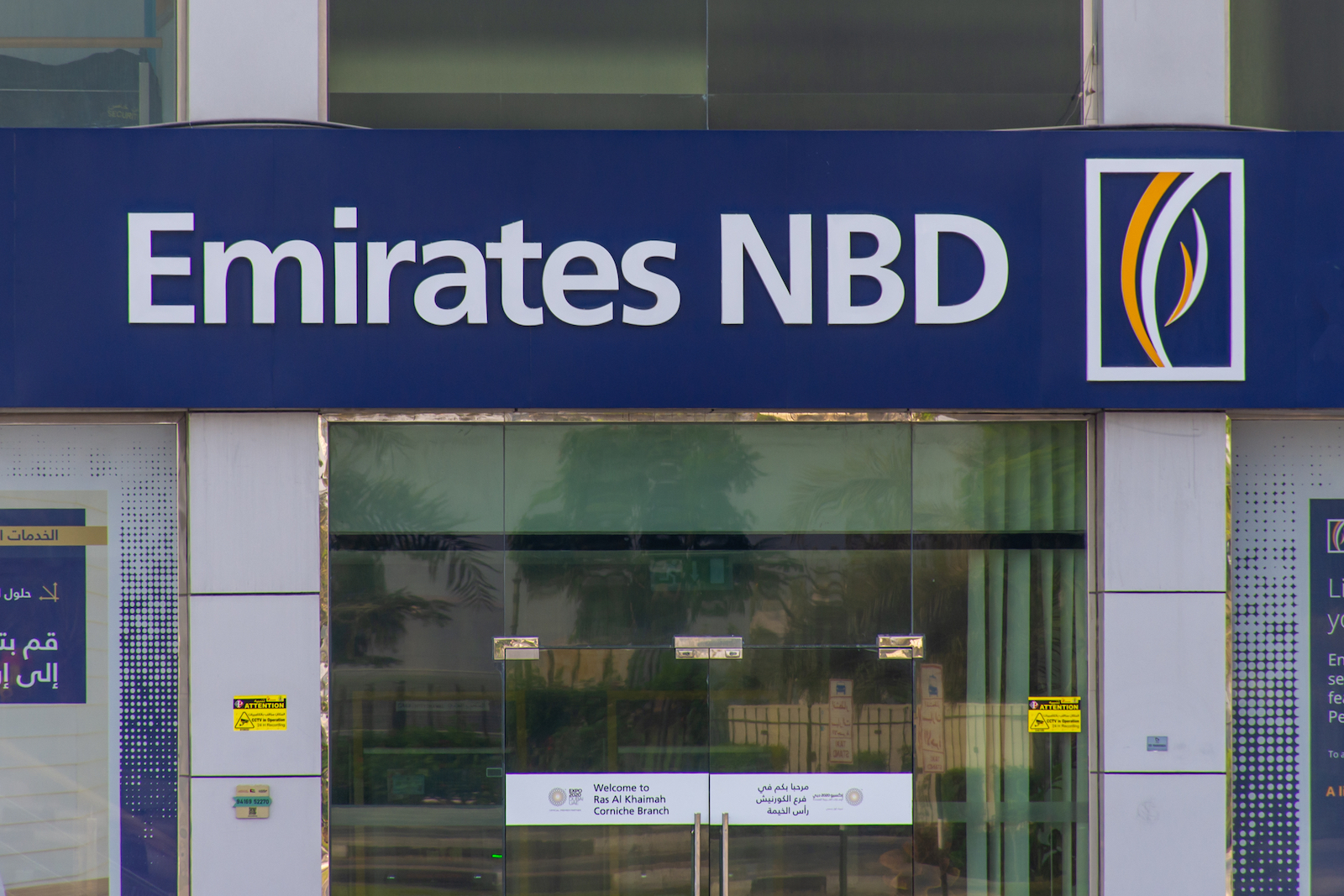
The bank lineup helping Emirates NBD Bank take its maiden green bond issuance to market: Emirates NBD has tapped Abu Dhabi Commercial Bank, BNP Paribas, Emirates NBD Capital, HSBC, ING and Standard Chartered Bank were named as joint leaders and bookrunners on its planned green bond sale, Reuters reports, citing a document it has seen.
HSBC and ING will co-serve as sustainability coordinators: The two banks will help define the specific environmental and sustainability goals and projects that the green bond proceeds will support, verify their environmental impact, and facilitate communication with investors and other stakeholders.
The issuance in question: Emirates NBD is planning to issue a “benchmark-sized,” five-year, USD-denominated green senior unsecured bond under its USD 20 bn Euro Medium Term Note Program, the document said.
Emirates NBD launched a framework to increase its sustainable debt issuance last month: The plan aims to streamline the process of providing green debt and other sustainable instruments to “finance projects that enable the transition to a low carbon and climate-resilient economy,” the company said in a statement. The framework applies to all its entities, including Emirates NBD, Emirates Islamic, DenizBank and Emirates NBD Asset Management.
AGRITECH
KSA’s Red Sea is collaborating with Spain’s Armando Alvarez to manufacture recyclable greenhouse roofs for hot climates
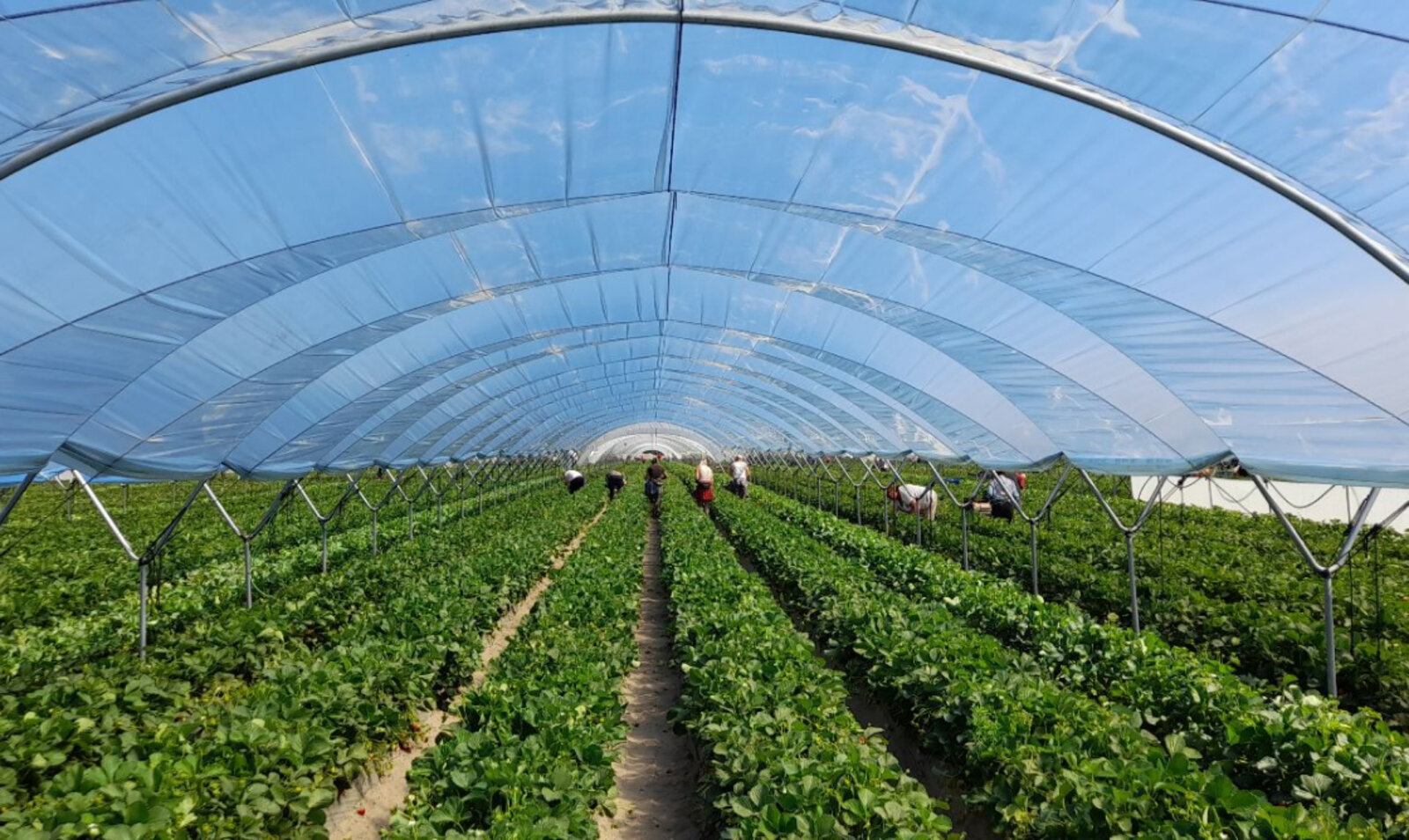
Armando Alvarez + RedSea partner to manufacture recyclable greenhouse covers for hot climates: Saudi Arabia-based agricultural technology startup RedSea has partnered with Spain-based sustainable packaging giant Armando Alvarez Group (AAG) to jointly manufacture sustainable, heat-blocking greenhouse roofs for farming in hot climates, according to a company statement. The two signed an exclusive collaboration agreement which will see RedSea’s patented iyris SecondSky nanotechnology — which reduces daytime temperatures in covered areas while allowing up to 80% of photoselective radiation to pass through — incorporated into AAG’s fully recyclable greenhouse cover films.
The collaboration is a trailblazer in climate adaptation: RedSea’s technology has proved to save significant amounts of energy and water and extend the growing season in hot climates, co-founder and chief engineer at RedSea Derya Baran told Enterprise Climate in a June interview. Recent tests in Saudi Arabia showed over 40% reduction in energy usage and water consumption, according to Baran. This helps countries with harsh and hot environments build food security and climate resilience amid water scarcity, water salinity, and drought.
What they said: “This collaboration enables us to efficiently deploy RedSea’s innovative heat blocking technology to increase profitability for growers and farmers in hot climates,” RedSea president Simon Bryant said in the statement. “By saving water and energy, plants and humans experience less heat and water stress – making both more productive and exponentially improving profitability,” Bryant added.
About RedSea: RedSea — a university spin out from Kaust in Saudi Arabia — was founded in 2018 with a mission to use technology to help feed the world sustainably by designing, developing, and delivering one of the most advanced hot climate agtech platforms, Baran told Enterprise Climate. The company’s technology is being used by growers in Saudi Arabia, the UAE, Egypt, Turkey, Spain, Portugal, the US, and the UK, according to its website. Baran said that the next three to five years for the company will be focused on continuing its expansion.
RedSea has ongoing research in agritech for the region: RedSea is running a research and development facility in Kaust where it is trying new technologies and crop varieties, and has launched a one-hectare commercial greenhouse facility in Abu Dhabi.
About Armando Alvarez Group: AAG is the World’s largest converter of agricultural plastics and a leader of the European polyethylene film industry, offering solutions for the packaging, agriculture, and geosynthetics sectors, the statement said.
STARTUP WATCH
US’ Aqua Membranes earns top prize for desalination innovation in KSA
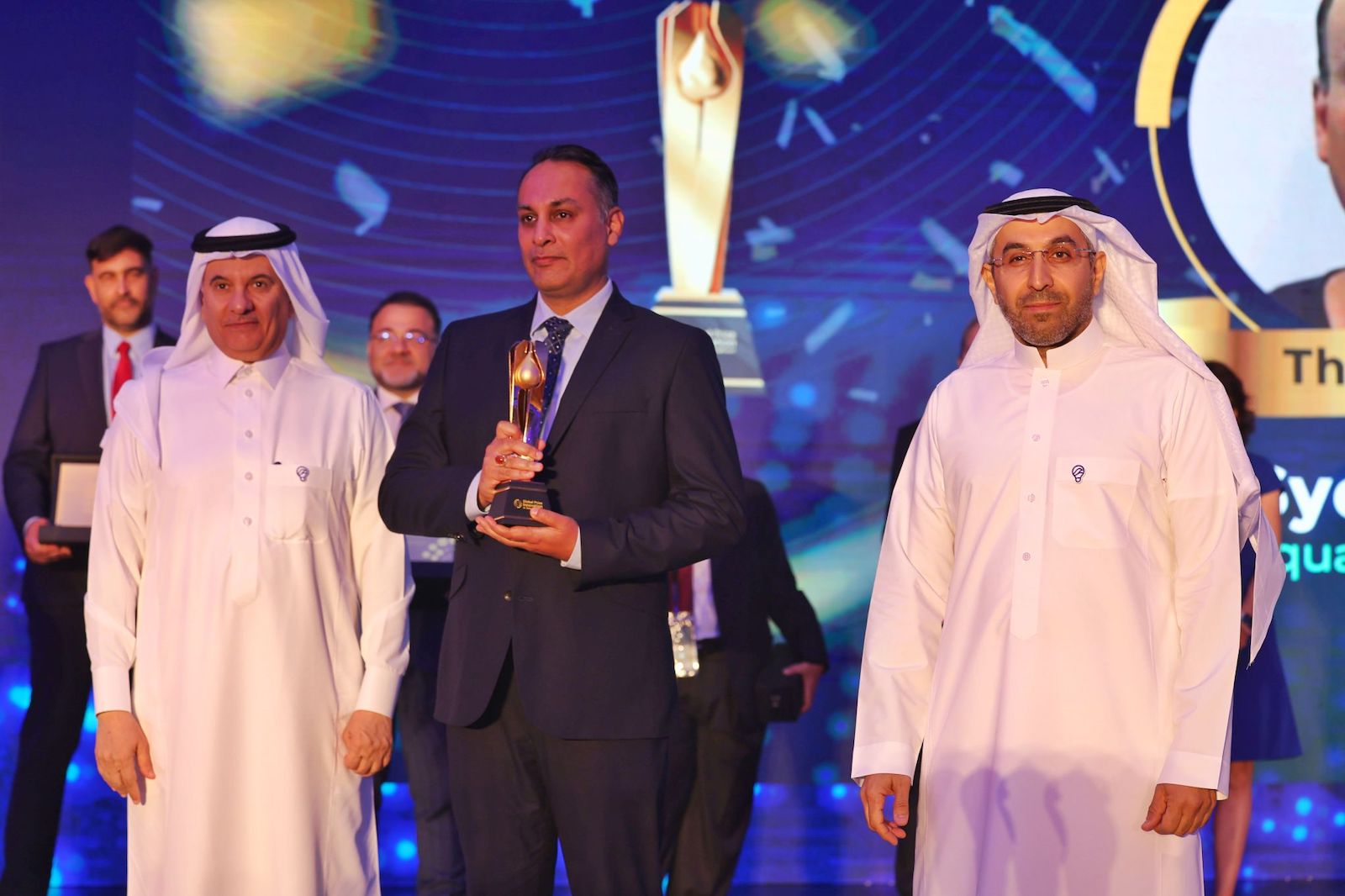
US water technology startup Aqua Membranes was awarded the grand prize of the Global Prize for Innovation in Desalination (GPID) in an award ceremony in Saudi Arabia’s Jeddah, organizers said in a statement on Sunday. The company was awarded the top prize for their project titled “Changing reverse osmosis through 3D printed spacers” during the GDIP, which awarded prizes worth a combined USD 10 mn.
About the company: Aqua Membranes manufactures spiral wound membrane elements through its printed spacer technology to print directly on the membrane surface. Such spacers allow for a significant increase in square footage in the same size element in comparison with the conventional mesh feed spacers used in reverse osmosis. This allows for an open design, reduced fouling and lower capital and operating costs in membrane plant operations.
About the technology: Aqua Membranes’ Chief Operating Officer Syeh Shah told Arab News that his company has decided to take the “conventional and outdated RO membrane technology and introduce a groundbreaking printing approach to it.” The technology focuses on addressing the plastic mesh feed spacer available in all reverse osmosis elements. “Our breakthrough came in the form of an innovative 3D spacer technology, augmented by artificial intelligence to determine various patterns that could be directly printed onto the membrane,” he said. An elimination of the plastic mesh has led to lower energy consumption, improved water recovery and membrane durability, among other benefits, he said.
And some others went home with prizes: Five other startups also earned prizes at the GDIP, which saw competition from 105 innovators from 27 countries. These include the US’ Active Membranes, Harmony Desalting, and Mega Vessels Water. Winning entries from other nations include the Netherland’s Desolenator and France’s Schneider Electric.
CLIMATE DIPLOMACY
Electric vehicle metals cooperation in the cards for KSA + China?
KSA and China to collab on metals for EVs: Saudi Deputy Minister of Industry and Mineral Resources for Mining Affairs Khalid bin Saleh Al-Mudaifer met with representatives from several Chinese businesses to discuss collaboration in mineral supply chains for various industries. The discussion centered on luring investments to the mining and processing of metals used in EVs. (SPA)
Morocco + Israel to collaborate in agriculture + water: Morocco’s Agriculture Minister Mohamed Sadiki and his Israeli counterpart Avi Dishtir signed an agreement on agriculture and water cooperation, which includes the construction of an agricultural aquaculture field project and a center for agriculture studies. (I24)
FROM THE CLIMATE STORE
Zeekr to sell EVs in four new MENA countries
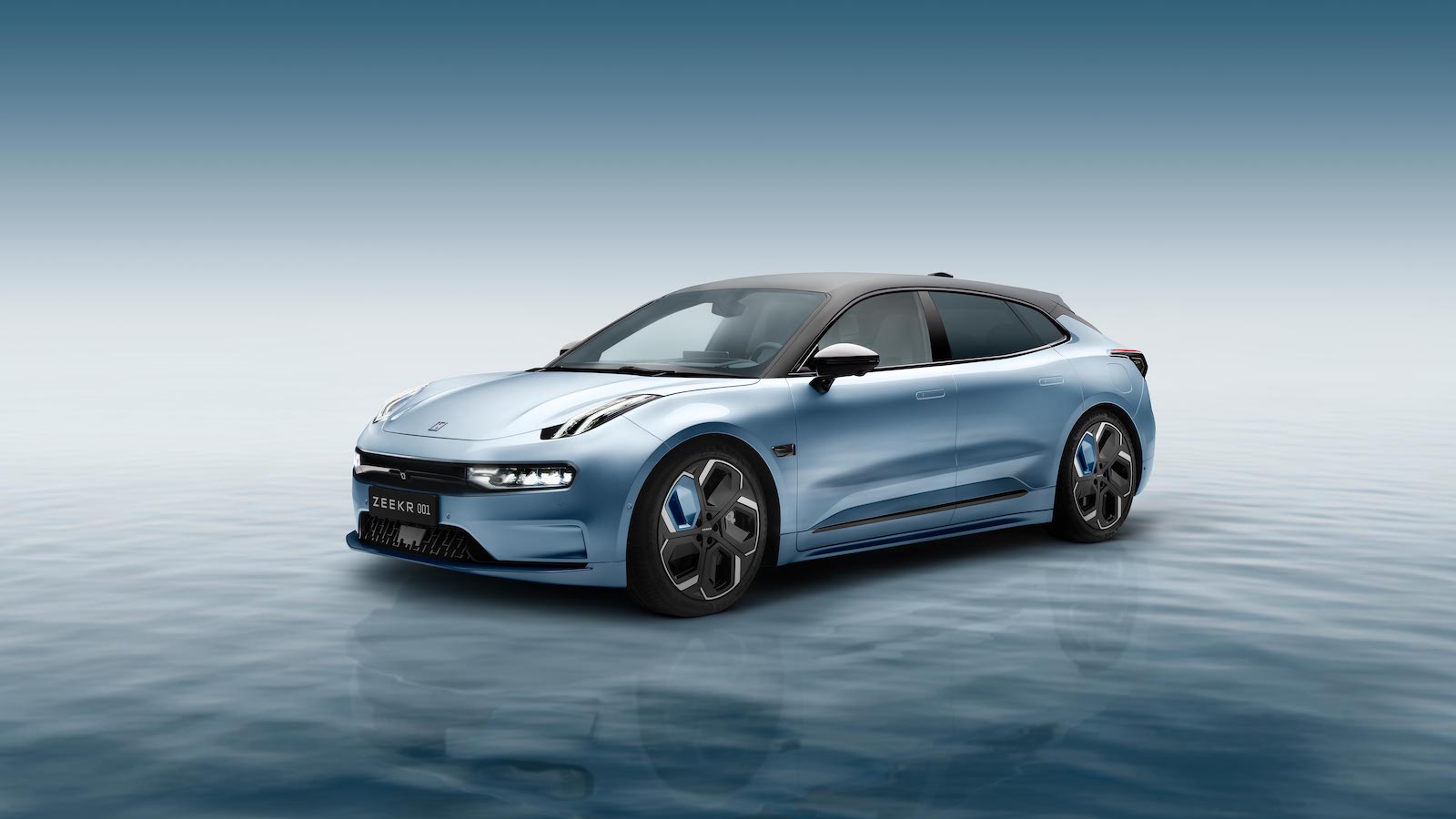
Zeekr — a luxury EV brand by Chinese automotive manufacturer Geely — is expanding into four Middle East countries next year as it ramps up its global presence ahead of its planned US listing, Zeekr vice-president Chen-Yu said, according to the Financial Times. Zeekr will launch operations in Saudi Arabia, the UAE, Qatar, and Bahrain. The EV maker is expected to deliver 10k units to the four new markets by 2025.
The specs: The Zeekr 001 model packs a 400 KW battery with a WLTP range of 620 KM and can reach 100 km/h in 3.8 seconds, delivering a 200 km/h top speed. The Zeekr X model comes with 315 KW of power, a 445 KM range, and a 180 km/h top speed.
Refresher- Zeekr raised USD 750 mn in January to boost tech research, fuel global expansion plans, and launch its all-electric SUV Zeekr X along with an expansion into Europe in 2023. Zeekr’s cars are also expected to be launched in Israel by the end of the year. The company is open to fundraising from MENA investors, the report noted. “The Middle East is a relatively new market for EVs and there isn’t a matured brand offering of premium EVs in most of their markets,” Yu said.
The price tag: Zeekr 001 currently goes for around USD 63k in Europe, while Zeekr X's starting price is around USD 47k. The price for the Middle East launch is yet to be announced.
ALSO ON OUR RADAR

WASTE MANAGEMENT-
Waste recycling plant in the UAE coming online next year 2024: Miniwiz is expected to begin operating its waste recycling factory in the UAE, which will turn waste into materials used for construction, in 2024, Miniwiz CEO and founder Arthur Huang said on Wednesday, according to Khaleej Times. “I see a lot of potential here to recycle waste into building material and even ship it to places, especially in Africa,” Huang is quoted as saying. Huang believes MiniWiz could help the UAE gain self-sufficiency from many different angles as essentially, the company operates by reducing waste and pollution by transforming and repurposing single-use plastic, metal, glass, and other waste materials into diverse useful items that can serve as building materials, fixtures, furniture, and even medical-certified materials.
NUCLEAR-
Morocco to boost nuclear relations and safety: Morocco's Agency for Nuclear and Radiological Safety and Security (AMSSNuR) signed an MoU with the Egyptian Nuclear and Radiological Regulatory Authority (ENRRA) to strengthen cooperation in the area of nuclear and radiological safety and security at the International Atomic Energy Agency (IAEA) General Conference in Austria, according to a statement. AMSSNuR also signed a Practical Arrangements partnership with IAEA to strengthen radiological safety measures in Africa, stated the agency on Friday. The partnership aims to build capacity in radiological safety and ensure the safe use of ionizing radiation sources in Africa. .
OTHER STORIES WORTH KNOWING ABOUT THIS MORNING-
- SOMC + PTAC working on carbon-neutral lubricants in Oman: Shell Oman Marketing Company (SOMC) and Precision Tune Auto Care (PTAC) are collaborating on carbon-neutral lubricants in Oman. Shell will supply its lubricants through PTAC's service centers. These will include the Shell Helix Ultra oil and Shell Helix ultra OW carbon-neutral range of products. (Arabian Daily)
- UAE economy minister in France to discuss renewables: UAE Economy Minister Abdulla bin Touq Al Marri visited startup incubator Station F, the Airbus Innovation Center, and the First Abu Dhabi Bank HQ during an official visit to France. The minister discussed with officials cooperation in aviation, renewable energy, tourism, business, AI, space, and the circular economy. (Wam)
- Oman to run second year of Green Schools Project: Oman will run a second year of its education ministry’s Green Schools Project. The initiative, which receives funding from the UAE’s Bee’ah, Shell Oman, Oman LNG, and others, aims to educate over 1k students and teachers in 11 governorates on the circular economy during the 2023-24 academic year. (Oman Education Ministry)
AROUND THE WORLD
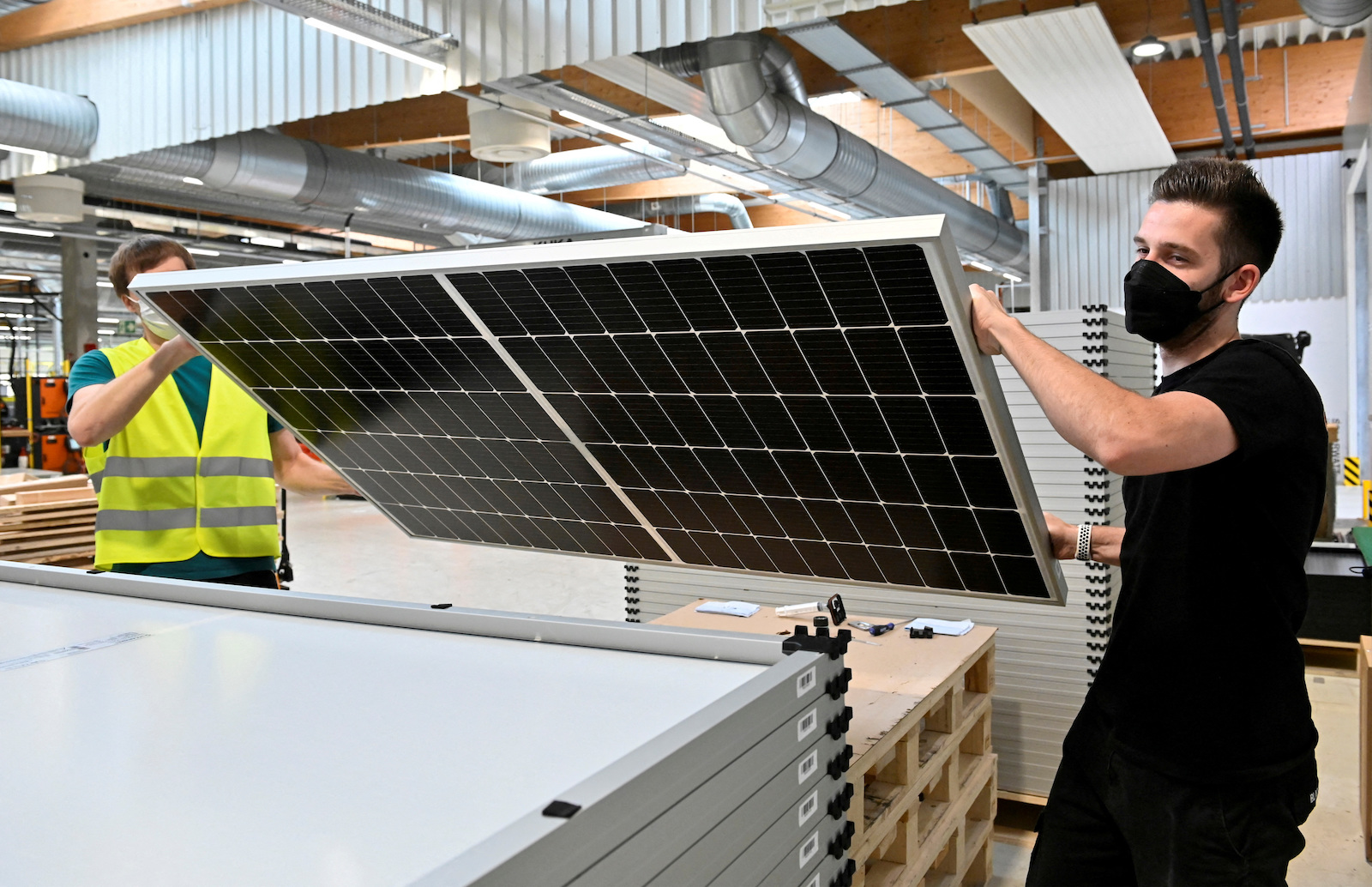
Europe’s solar industry says tariffs are a “lose-lose strategy”: Europe’s solar power industry is urging policymakers not to impose tariffs on imports amid concerns that disrupting supplies from China could hamper Europe’s efforts to install clean energy, Reuters reported on Monday. “Tariffs are not a good answer to the current challenges in the European solar industry,” said Gunter Erfurt, Board Director at industry group SolarPower Europe. “Instead of sanctioning the entire industry through tariffs, we must incentivize solar installations that originate from resilient European solar production. This way, the deployment of solar energy can continue undisturbed while European solar manufacturing can grow steadily,” Erfurt added. Such tariffs on solar would be a “lose-lose strategy” for the industry, SolarPower Europe said.
The policymakers’ rationale: The worries by Europe’s solar industry come as European governments and Brussels seek tougher controls on imports in a bid to slash dependency on China for the green transition.
India auctioning critical minerals in pursuit of renewable targets: India plans to sell off 20 critical minerals blocks as it works to achieve its 450 GW 2030 renewable energy plan and cut down on import dependency, The National reports. India had discovered 5.9 mn tonnes of lithium reserves in the Jammu and Kashmir region earlier this year. The blocks include lithium, cobalt, chromium, copper, and nickel, and are located in many states. The auction will be open to domestic as well as international companies and is expected to generate interest from both electric vehicle (EV) manufacturers and battery manufacturers.
Falling solar costs could alleviate Bangladesh's energy woes: Bangladesh's energy crisis, driven by heavy reliance on fossil fuels, could find relief due to declining solar power prices, BloombergNEF reported. By 2025, solar power alone is expected to be the most cost-effective energy source in the country, the report reads. By the end of the decade, the combination of solar and batteries is projected to outcompete new coal and gas power plants, providing an opportunity for Bangladesh to reduce its carbon footprint despite state plans for continued fossil fuel-based power generation.
OTHER STORIES WORTH KNOWING ABOUT THIS MORNING-
- Hystar building 4 GW plant in Norway: Electrolyser company Hystar will build a 4 GW plant in Norway next year and plans to expand into North America to benefit from investment incentives. Hystar, which is financially backed by Mitsubishi and Nippon Steel Trading, says its tech will use 10% less energy for electrolysis than current models. (Reuters)
CLIMATE IN THE NEWS
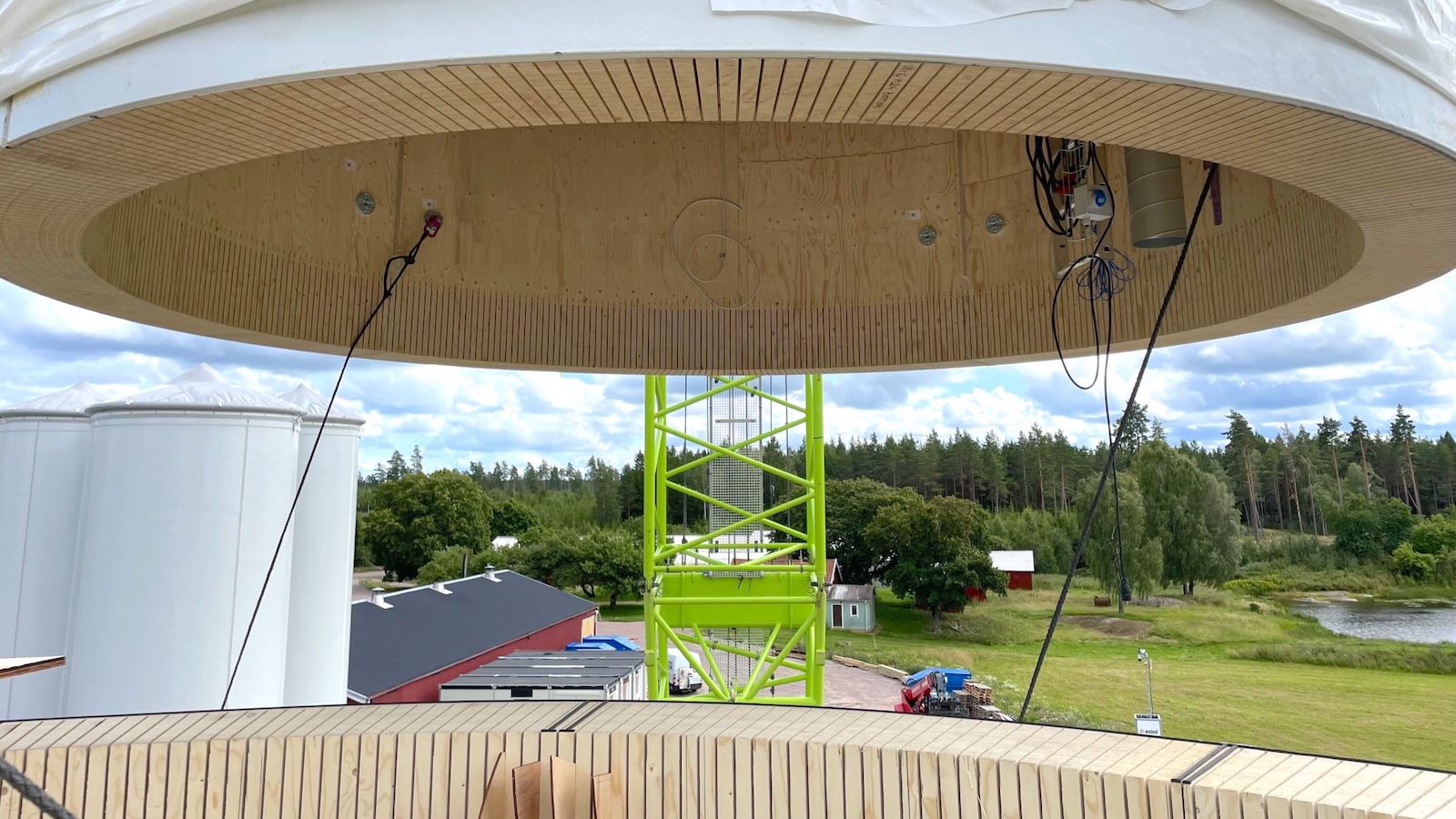
A Swedish startup could have the answer to making the wind turbine industry greener: Swedish engineering and industrial design startup Modvion is banking on wood to help make the wind turbine industry greener, possibly lowering its carbon footprint by over 90%, Bloomberg reported on Friday. The company is building a 40-ton tower out of wood as part of a plan to set up the world’s tallest turbine made of timber within the coming weeks. The turbine tower will be sold to a utility providing clean energy to local households and factories. “The world is facing a climate crisis, and we need to switch energy sources,” Modvion’s CEO Otto Lundman said.
Durable wood: The project, located outside Sweden’s Skara, is manufactured from Finnish spruce that is laminated for strength and protection against the elements and fire. The modules are piled on trucks at one of its facilities in Gothenburg and then pasted together on site. The timber tower will be home to a recycled Vestas V90 2 MW machine, with the Danish wind leader also providing blades to crown the tower, which is slated to be 150 meters tall upon completion.
Why this matters for both the environment and the industry: Wood is a carbon sink and is renewable, in contrast to steel production — responsible for c. 8% of the energy industry’s carbon footprint — which would require tns of USD to decarbonize, according to Bloomberg. A more sustainable option would prove handy to the wind industry, which is already being hit by higher costs, supply chain snags, and financing obstacles due to higher interest rates.
EV road trip reveals inconsistencies in charging infrastructure: A Swiss-led team’s 6.5k km journey across Europe and the Gulf to Qatar in two electric vans highlighted mismatched charging infrastructures across the 12 countries they passed through, VOA news reported. The journey to Doha was originally meant to raise awareness about the benefits of EVs. During their trip, the team noted that charging their vehicles was easier in some countries than others, reporting that in Jordan they've had to adapt their European car systems, as Chinese hardware was all they found; while in Europe, paying was a struggle and the only way to complete charging point payments, was through installing a plethora of apps.
CALENDAR
OCTOBER 2023
2-5 October (Monday-Thursday): ADIPEC Decarbonization Accelerator, Abu Dhabi, UAE.
4 October (Wednesday): Arabia CSR Gala Awarding Ceremony, UAE.
4-5 October (Wednesday-Thursday): Future Sustainability Forum, Dubai, UAE.
9-10 October (Monday-Tuesday): Saudi Green Building Forum, Riyadh, Saudi Arabia.
10-11 October (Tuesday-Wednesday): Green Energy Africa Summit, Cape Town International Convention Centre 2, Cape Town, South Africa.
8-12 October (Sunday-Thursday): MENA Climate Week, Riyadh, Saudi Arabia.
9-15 October (Monday-Sunday): World Bank/IMF 2023 Annual Meetings, Marrakech, Morocco.
10-12 October (Tuesday-Thursday): Autonomous E-Mobility Forum, Doha, Qatar.
16-17 October (Monday-Tuesday): Duqm Economic Forum, Duqm, Oman.
16-18 October (Monday-Wednesday): Climate Week, Rome, Italy.
16-20 October (Monday-Friday): UNCTAD World Investment Forum, Abu Dhabi, UAE.
18-20 October (Wednesday-Friday): Morocco and Belgium business meeting on green hydrogen, Tangiers, Morocco.
17-18 October (Tuesday- Wednesday): Critical Minerals Africa Summit, Cape Town, South Africa.
17-19 October (Tuesday-Thursday): Energy Intelligence Forum, London, UK.
17-20 October (Tuesday-Friday): Fourth meeting of the COP27 Transitional Committee, Aswan, Egypt.
25-26 October (Friday-Saturday): Offshore & Floating Wind Europe 2023, London, United Kingdom.
29 October-2 November (Sunday-Thursday): Cairo Water Week, Cairo, Egypt
30 October – 1 November (Monday-Wednesday) ISWA 2023 World Congress: Global action towards a net-zero future, Muscat, Oman.
31 October-2 November (Tuesday-Thursday): Financial Times’ Energy Transition Summit, London, UK.
31 October-2 November (Tuesday-Thursday): World Hydropower Congress, Bali, Indonesia.
NOVEMBER 2023
1-3 November (Wednesday-Friday): Forbes Middle East Sustainability Leaders Summit 2023, Abu Dhabi, UAE.
7-8 November (Tuesday-Wednesday): ADIA Lab Symposium on Climate Change and Health Sciences, Abu Dhabi, UAE.
7-8 November (Tuesday-Wednesday): The 2023 US Algeria Energy Forum, Washington DC, USA.
9-10 November (Thursday-Friday): International Renewable Energy Agency Investment Forum, Uruguay.
9-15 November (Thursday-Wednesday): Intra-African Trade Fair 2023, Cairo, Egypt.
11-13 November (Saturday-Monday): GCC-Türkiye Economic Forum, Istanbul, Turkey.
15-17 November (Wednesday-Friday): WETEX and Dubai Solar Show, Dubai, UAE.
15-18 November (Wednesday-Saturday): DEWA’s First MENA Solar Conference, Dubai, UAE.
20-24 November (Monday-Friday) International Civil Aviation Organisation’s Aviation and Alternative Fuels conference, Dubai, UAE.
27-30 November (Monday-Thursday) Abu Dhabi Finance Week (ADFW), Abu Dhabi, UAE.
28-29 November (Tuesday-Wednesday): World Green Economy Summit (WGES), Dubai, UAE.
30 November – 12 December (Thursday-Tuesday): Conference of the Parties (COP 28), Dubai, UAE.
DECEMBER 2023
4 December (Monday): Saudi Green Initiative Forum, Dubai, UAE.
4 December (Monday): Abu Dhabi Sustainability Week (ADSW) summit, Dubai, UAE.
8 December (Friday): Youth for Sustainability Forum (Y4S), Dubai, UAE.
12-14 December (Tuesday-Thursday): Green Hydrogen Summit Oman, Oman Convention and Exhibition Center, Muscat, Oman.
18-20 December (Monday-Wednesday): Saudi Arabia Smart Grid Conference, Hilton Riyadh Hotel & Residences, Riyadh, Saudi Arabia.
JANUARY 2024
9-11 January (Tuesday-Thursday): Future Minerals Forum, Riyadh, Saudi Arabia.
FEBRUARY 2024
26-28 February (Monday-Wednesday): Management and Sustainability of Water Resources, Dubai, UAE.
MARCH 2024
4-6 March (Monday-Wednesday): International Conference on Sand and Dust Storms in the Arabian Peninsula, Riyadh, Saudi Arabia.
APRIL 2024
16-18 April (Tuesday-Thursday): World Future Energy Summit, Abu Dhabi, UAE.
23-25 April (Tuesday-Thursday): Connecting Green Hydrogen MENA, Dubai, UAE.
MAY 2024
19-21 May (Sunday-Tuesday): Saudi Energy Convention, Riyadh, KSA.
JUNE 2024
5 June (Wednesday): World Environment Day, Saudi Arabia.
DECEMBER 2024
2-13 December (Monday-Friday): Conference of the Parties (COP16) to the United Nation Convention to Combat Desertification, Riyadh, KSA.
EVENTS WITH NO SET DATE
2023
Mid-2023: Oman set to sign contracts for green hydrogen projects.
Mid-2023: Sale of Sembcorp Energy India Limited to consortium of Omani investors to close.
Phase C of the 900-MW of the Mohammed bin Rashid Al Maktoum Solar Park in Dubai to be completed.
Saudi Basic Industries Corporation (Sabic) steam cracker furnace powered by renewable energy to come online.
2024
12-14 February (Monday-Wednesday): Sustainable Aviation Futures MENA Congress, Dubai, UAE.
End-2024: Emirati Masdar’s 500 MW wind farm in Uzbekistan to begin commercial operations.
QatarEnergy’s industrial cities solar power project will start electricity production.
2025
International Union for Conservation of Nature World Conservation Congress, Abu Dhabi, UAE.
UAE to have over 1k EV charging stations installed.
2026
UITP Global Public Transport Summit, Dubai, UAE.
1Q 2026: QatarEnergy’s USD 1 bn blue ammonia plant to be completed.
End-2026: HSBC Bahrain to eliminate single-use PVC plastic cards.
2027
MENA’s district cooling market is expected to reach USD 15 bn.
2030
UAE’s Abu Dhabi Commercial Bank (ADCB) wants to provide AED 35 bn in green financing.
UAE targets 14 GW in clean energy capacity.
Tunisia targets 30% of renewables in its energy mix.
Qatar wants to generate USD 17 bn from its circular economy, creating 9k-19k jobs.
Morocco’s Xlinks solar and wind energy project to generate 10.5 GW of energy.
2035
Qatar to capture up to 11 mn tons of CO2 annually.
2045
Qatar’s Public Works Authority’s (Ashghal) USD 1.5 bn sewage treatment facility to reach 600k cm/d capacity.
2050
Tunisia’s carbon neutrality target.
2060
Nigeria aims to achieve its net-zero emissions target.
Enterprise Climate is available without charge thanks to the generous support of HSBC (tax ID: 204-901-715), the leading corporate and retail lender in Egypt; and Infinity Power (tax ID: 305-170-682), the leading generator and distributor of renewable energy in Africa and the Middle East. Enterprise Climate is delivered Mon-Thurs before 4 am UAE time. Were you forwarded this copy? Sign up for your own delivery at climate.enterprise.press. Contact us on climate@enterprisemea.com.


